Business
Analysts blame rising inflation on forex controls
Published
10 years agoon
By
Olu Emmanuel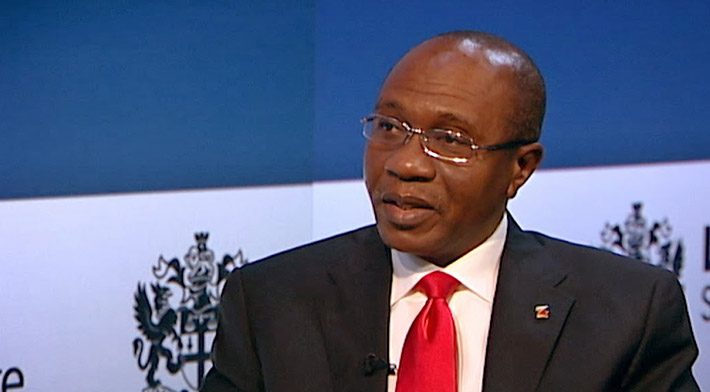
…Predicts more woes for economy
By ODUNEWU SEGUN
WITH inflation at its highest in three years, 11.4 per cent, and growth slowed to 2.8 per cent, the weakest level since 1999, down from 6.2 in 2014, the Nigeria economy is heading for total collapse unless something is done about the forex control policy by the CBN, analysts have argued.
Also, food prices had gained 11.4 per cent in February from a year ago, up from 10.6 per cent in January while figures released by the National Bureau of Statistics showed that the manufacturing sector contributions to the supply of goods and services in the country has also fallen by 12.1 per cent.
Analysts argued that forex controls as well as other monetary policies introduced by the Central Bank of Nigeria to prop the naira at the wake of dwindling oil prices are responsible for worsening the slow down by deterring foreign investment, and making it difficult for business to buy imported goods.
Many had therefore called for the devaluation of the naira as a panacea to the rising inflation, saying the pegging of the official exchange rates by the apex bank at N197 would only bring more woes to the economy.
ALSO SEE: CBN suspends deputy governor, 2 directors over fraud allegations
Similarly, operators in the economy argued that the current scenario is not encouraging as it has continued to impact the economy negatively. They called on the Central Bank of Nigeria (CBN) to take another look at its forex and monetary policies which they contend is anti-business as it is not able to fund the forex needs of businesses that depend on imports for machineries and some other raw materials that are not available locally.
While the feedback from the Federal Government remains that devaluation is off the card, the issue of devaluation or not remains a burning issue among stakeholders, particularly economists and operators in the economy.
An analyst with a Lagos-based economic advisory group, RotimiOyelere, explains that the naira had already devalued itself adding that official devaluation would lead to more economic burden on the citizenry.“Many of those clamouring for devaluation already have the greenbacks stored up in the private vaults, they want official devaluation so that they can make a kill; they simply want round-tripping to continue.”
But the Director General of the Lagos Chamber of Commerce and Industry, Muda Yusuf disagreed with Oyelere. In his argument, he maintained that the CBN needs to reverse some of its policies arguing that the current “foreign exchange policy is not sustainable”.
“The CBN policy is hurting the economy. As we speak, nobody is running its business on CBN’s model of exchange rate. Even those who were not included in the banned list can’t even get forex from the banks and it is the CBN policy that is causing the problems. Factories are closing down, people are losing jobs and investor confidence in the economy is waning. Foreign businesses can’t repatriate their profits and dividends,” Yusuf insisted.
On his part, Chief Executive of Financial Derivatives, Bismarck Rewane, appears to support a policy that encourages in flow of autonomous forex. “In this country, 10 to 15 years ago, we had Western Union and MoneyGram, and these people were bringing money into Nigeria. Nigerians in the Diaspora have $21 billion every year, which can come in, why are they not bringing it here?”
A former chief economist of African Finance Corporation and Chief Executive Officer, Nextnomics Advisory, Temitope Oshikoya, holds the same view as Rewane. He says: “As oil exports remains the main official government source of foreign exchange earnings, there has been pressure on foreign reserves and the exchange rates. However, there are other autonomous sources of foreign exchange including diaspora remittances. Both sources appear to be drying up partly because of uncertainty regarding government policies, including policy summersaults relating to capital accounts.”
ALSO SEE: CBN puts in measures to reduce stress on naira
But Oyelere disagrees still that failure to officially devalue the naira may lead to a recession. According to him “the economy is still looking good, Nigerian Bureau of Statistics ((NBS) forecast showed a four per cent GDP growth rate so I don’t foresee recession with government’s continued funding of sectors that will stimulate the economy.
We are not suffering from efficiency demand; it is efficiency demand that leads to recession, historically,” he states.
In his own prescription, Executive Director, Corporate Finance, BGL Capital Limited, Femi Ademola posits that, “the CBN should consider a complete floating of the currency while using the supply of foreign currency to manage the price exchange rate; not directly setting the price.
He said this may lead to a significant decline in the Naira immediately, it would moderate and stabilise at the appropriate market-determined rate in the short to medium term while the Naira could appreciate quite significantly over a long time as we moderate demand for foreign products by looking for local substitutes and thus encourage local production, he explained.
You may like


Appeal Court nullifies Emefiele’s asset forfeiture, Orders retrial


Naira gains 1.28% in official market in May amid oil price risks, currency volatility
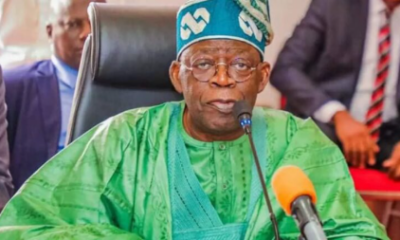

Tinubu: Diaspora APC chieftain tasks local banks on reforms
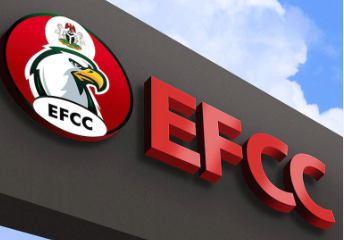

Alleged corruption: EFCC witness details wow Emefiele allegedly received $17.1 million in cash
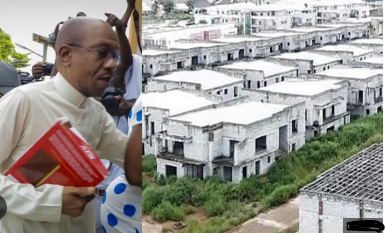

FG to auction 753 housing units forfeited by Ex-CBN Gov. Emefiele in Abuja
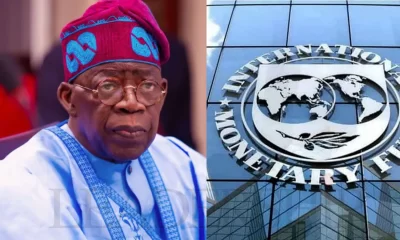

Nigeria’s debt rises to N74.38trn, $44.9bn despite IMF loan repayment
Trending

 Entertainment5 days ago
Entertainment5 days agoSimi addresses resurfaced 2012 tweets amid online backlash

 Comments and Issues1 week ago
Comments and Issues1 week agoNigeria’s Declining Oil Output and Soaring Foreign Portfolio Investment Inflow

 Health7 days ago
Health7 days agoSCFN, LUTH introduce bone marrow transplants as curative treatment for sickle cell

 Comments and Issues1 week ago
Comments and Issues1 week agoThe Seyi Tinubu’s jellof rice, loaves of bread

 Health4 days ago
Health4 days agoDeclassified CIA memo explored concealing mind-control drugs in vaccines

 Football7 days ago
Football7 days agoHarry Kane nets brace as Bayern edge Frankfurt 3–2 to go nine points clear

 Football7 days ago
Football7 days agoLate Flemming header stuns Chelsea as Burnley snatch 1–1 draw at Stamford Bridge

 Crime4 days ago
Crime4 days agoSenior police officers faces retirement after Disu’s appointment as acting IGP

